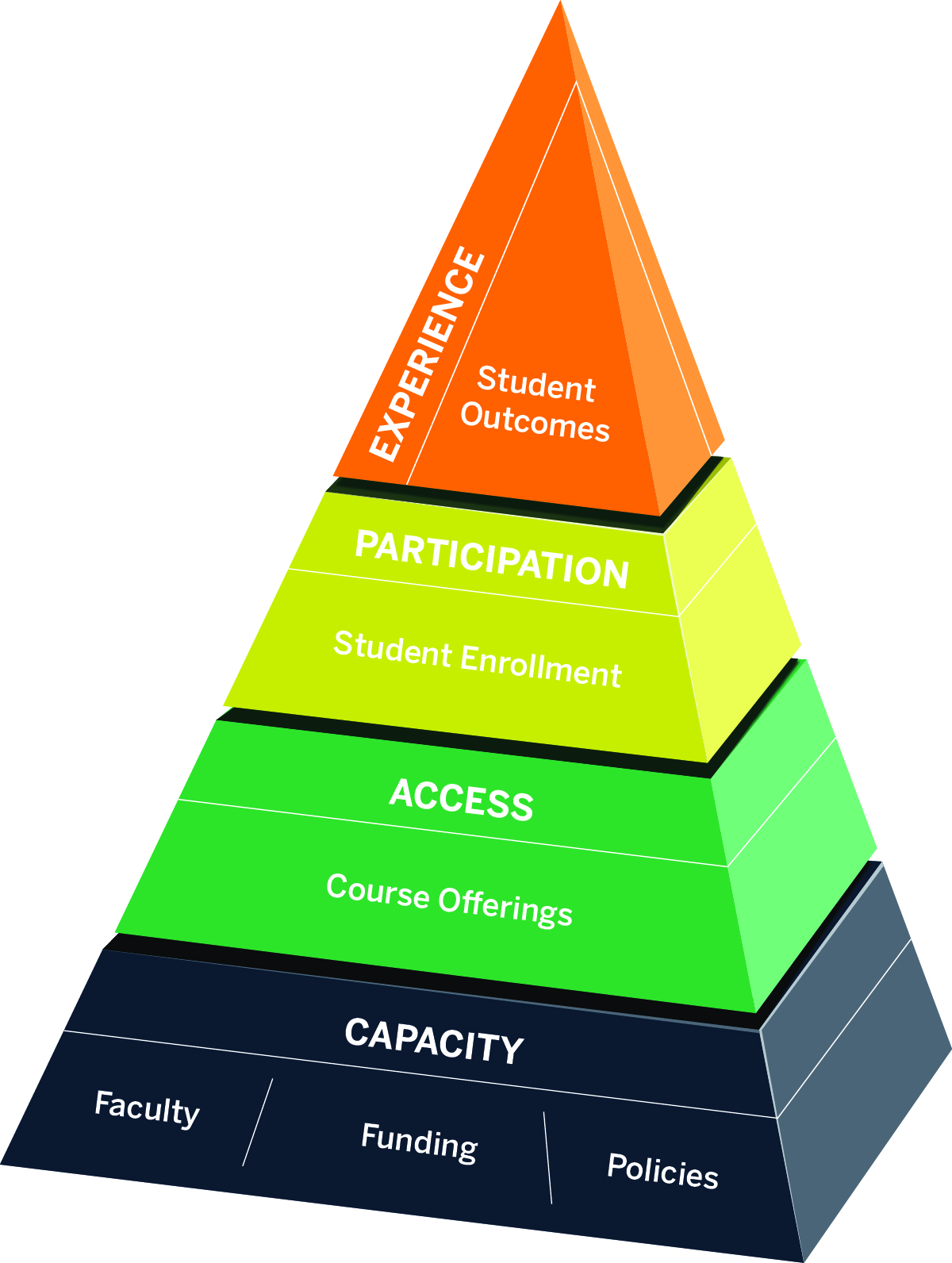People & Programs
Carol Fletcher
Related Articles
Equity in Computing
Thoughts from Carol Fletcher, Director of Expanding Pathways in Computing (EPIC)

Over the past decade, the computing profession has begun to recognize the negative repercussions of a lack of diversity in computing. If we hope to leverage the promise of computer science, and high performance computing in particular, to tackle grand challenges such as climate change and world-wide pandemics, we need our best and brightest in the game. Unfortunately, our current starting lineup is significantly hampered by a lack of diverse minds and experiences from women, people of color, indigenous people, and people with disabilities. Despite a heightened understanding of the value of diverse teams and investment in expanding opportunities to engage in computer science in the K-12 and undergraduate pipeline, we have seen very little progress toward making the computing profession more reflective of the demographics of our nation.
One of the reasons for this lack of progress may be that we have spent an inordinate amount of time and money focused on increasing opportunities for individuals in the pipeline, while those individual students are still trapped in a system that was not designed to promote their success. In other words, in addition to supporting individual students who are underrepresented in CS, we must also critically examine the system that continues to marginalize these students.
Renowned management guru W. Edwards Deming is often credited with the insight that every system is designed to produce the results that it gets. The K-12 and university level CS education system was never designed to ensure universal access or participation for all types of students. If we want to truly diversify the computing profession, we need to both address individual student interventions and interrogate the systems that produce the inequities we have seen in the computing profession for decades.
The EPIC group at TACC has begun to tackle the systemic changes needed to transform CS education through the lens of a new framework for examining the broader CS education ecosystem to evaluate how equity is impacted at every level. The CAPE framework consists of four interrelated components that all impact equitable CS education: Capacity for CS education, Access to CS education, Participation in CS education, and Experiences of CS education. For those interested in addressing the root causes of inequities in the computing profession, CAPE can be a useful tool.
For example, at the capacity level, one should ask whether qualified CS teachers are distributed equitably across K-12 schools. If they are not, it is not surprising that certain students will leave K-12 less prepared than others to successfully major in CS in college.
With regard to access, we should examine how access to CS courses in high school is impacted by school or student demographics. Schools which serve more low income students or students of color are less likely to offer CS and advanced CS courses in particular.
In addition, many schools use advanced math prerequisites to limit access to CS courses. Given the well-documented negative impacts of math tracking on low income students and students of color, it may be the case that they attend a school that offers CS, but in reality lack the opportunity to enroll in CS courses early on in their high school career, effectively shutting the door to CS pathways. Without equitable access, it’s not surprising that equitable participation then becomes a systemic problem.
Finally, we know that equitable enrollment in CS courses alone will not be sufficient. We must examine how student experiences differ for those historically underrepresented in CS. Are CS courses designed to be welcoming and inclusive to a diverse range of students? Are learning outcomes consistent, regardless of student demographics?
The systemic approach to addressing diversity, equity, and inclusion in CS education that the CAPE framework promotes brings a new approach to our nation’s efforts to broaden participation in the computing profession. States that are part of the NSF-funded Expanding Computing Education Pathways Alliance (ECEP), such as Texas, are beginning to use this model to interrogate their own systems and promote policy change. If diversifying computing is a priority for you, I encourage you to begin asking questions about how equitable capacity, access, participation, and experiences in your state or institution are being addressed and measured.
The CAPE framework promotes an ecosystem approach to evaluating equitable capacity for, access to, participation in, and experiences of CS education. This holistic approach focuses on improving the systems that are contributing to, and often reinforcing, disparate outcomes in CS education, thus making change more scalable and sustainable.

The EXPERIENCE students have in CS courses will determine their success.
Experience can be evaluated by asking: Are courses taught in inclusive learning environments? Are there disparities in student passing rates based on gender or race?
PARTICIPATION means enrolling in CS courses when offered by the school.
Equitable participation can be analyzed by looking at enrollment disparities in advanced CS courses based on gender, geography, socioeconomic status, or ethnicity.
ACCESS, at the high school level, means attending a school that offers CS courses. At the undergraduate level, access can address the availability of CS coursework to both CS majors and non-majors.
Equity in access to CS can be explored by asking: Are rural students less likely to attend a school that offers CS courses than their urban or suburban peers?
CAPACITY refers to the availability of resources to support high-quality CS instruction, including faculty, funding, and policies that make implementing CS instruction inclusive.
Equitable capacity can be investigated by asking: How does a shortage of CS faculty impact opportunities for underrepresented students to major in CS?

